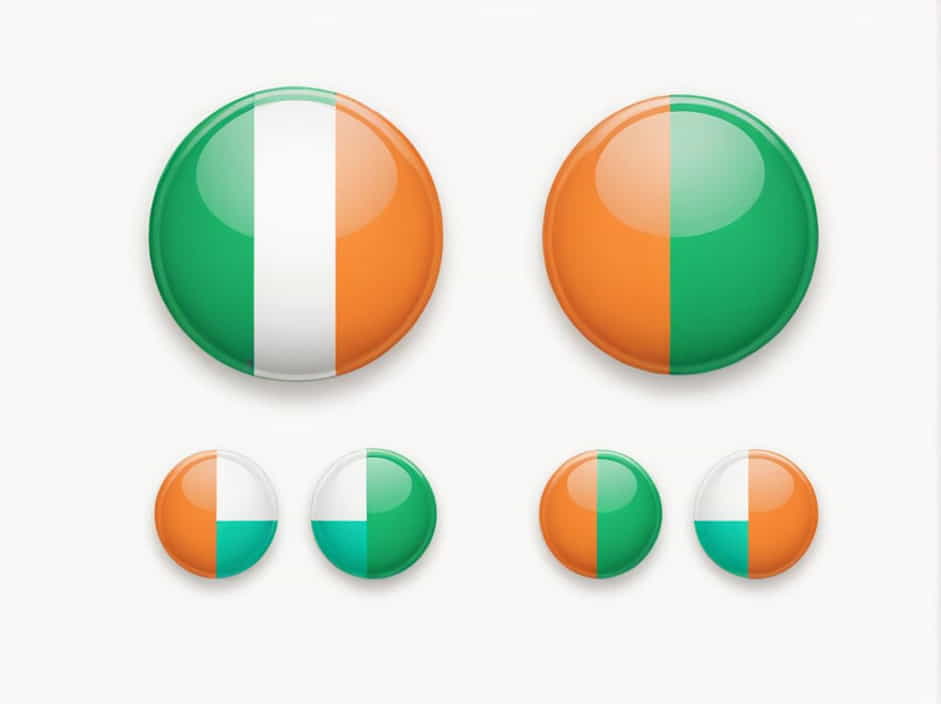The terms Nigerian and Nigerien sound similar, but they refer to people from two different countries in West Africa: Nigeria and Niger. Many people confuse these terms due to their similar spelling and pronunciation, but there are key differences in culture, language, economy, and geography.
Understanding these differences helps to avoid miscommunication and misunderstandings when referring to people from these nations.
1. Basic Difference: Country of Origin
The main difference between a Nigerian and a Nigerien is their nationality:
- A Nigerian is a citizen of Nigeria.
- A Nigerien is a citizen of Niger.
Although both countries are located in West Africa and share a border, they have distinct identities, cultures, and histories.
2. Pronunciation and Spelling Differences
Even though “Nigerian” and “Nigerien” look almost identical, they are pronounced differently:
- Nigerian is pronounced as “Ny-JEER-ian”.
- Nigerien is pronounced as “Nee-ZHER-yen” (French pronunciation).
The French-style spelling and pronunciation of Nigerien reflects Niger’s colonial history, as it was once ruled by France.
3. Geographical Differences
While both Nigeria and Niger are located in West Africa, they have major geographical differences:
Nigeria
- Larger and more populated (223 million people).
- Lush tropical climate in the south and savanna regions in the north.
- Has a coastline along the Atlantic Ocean, making it an important trade hub.
- Capital city: Abuja.
- Largest city: Lagos (one of the biggest cities in Africa).
Niger
- Smaller and less populated (about 27 million people).
- Mostly desert and semi-arid climate.
- Landlocked country (no access to the ocean).
- Capital city: Niamey.
4. Language and Colonial Influence
A major difference between Nigerians and Nigeriens is the official language spoken in each country:
Nigeria
- Official language: English (due to British colonial rule).
- Over 500 ethnic languages spoken, including Hausa, Yoruba, and Igbo.
- English is widely used for business, government, and education.
Niger
- Official language: French (due to French colonial rule).
- Major local languages include Hausa, Zarma, and Tuareg languages.
- French is the main language for education and government.
The British influence in Nigeria and the French influence in Niger have shaped their political systems, legal structures, and education.
5. Cultural and Ethnic Differences
Both Nigeria and Niger have diverse ethnic groups and rich cultures, but there are significant differences:
Nigeria
- Over 250 ethnic groups, with the largest being Hausa-Fulani, Yoruba, and Igbo.
- Diverse religious practices, with Christianity in the south and Islam in the north.
- Vibrant music industry (Afrobeats, Nollywood films, and global cultural influence).
Niger
- Fewer ethnic groups, with Hausa and Zarma being the most prominent.
- Majority Muslim population (about 99%).
- Traditional music and art are influenced by Tuareg and Hausa culture.
Nigeria is known for its modern entertainment industry, while Niger has a more traditional cultural scene focused on folk music and art.
6. Economic and Development Differences
Nigeria and Niger have vastly different economies due to their resources, industries, and population sizes.
Nigeria
- Largest economy in Africa, driven by oil, technology, and agriculture.
- Major industries: oil and gas, telecommunications, banking, and entertainment.
- Stronger infrastructure (airports, roads, and electricity supply).
Niger
- One of the poorest countries in the world, with an economy based on agriculture and mining.
- Major exports: uranium, livestock, and onions.
- Limited industrialization and infrastructure, with many rural communities relying on subsistence farming.
Nigeria’s large oil reserves make it a wealthier nation, while Niger relies on natural resources but faces economic challenges.
7. Political Differences
Nigeria
- Federal Republic with an elected president and government.
- Multi-party democracy, but has faced corruption and security challenges.
- Has experienced military coups in the past, but has been a democracy since 1999.
Niger
- Unstable political history, with frequent military coups.
- Democracy has been interrupted by military takeovers.
- The government has struggled with terrorism and instability in recent years.
Nigeria has a more stable political system, while Niger has faced challenges in maintaining democratic governance.
8. Security and Safety Differences
Nigeria
- Faces security issues such as Boko Haram insurgency in the northeast.
- Some regions experience ethnic conflicts and kidnappings.
- Major cities like Lagos and Abuja are generally safe but have high crime rates.
Niger
- Faces terrorist threats from groups like ISIS and Al-Qaeda affiliates.
- Some areas near the Mali and Burkina Faso borders are unsafe due to militant activity.
- Niamey, the capital, is relatively safe compared to rural areas.
Both countries deal with security challenges, but Nigeria’s issues are mostly internal, while Niger faces threats from regional conflicts.
9. International Recognition and Global Influence
Nigeria
- Considered one of the most powerful countries in Africa.
- A major player in the United Nations, African Union, and ECOWAS.
- Influential in sports, entertainment, and business.
Niger
- Less globally recognized due to economic and political struggles.
- Plays a role in regional security and natural resource trade.
- Works closely with France and international organizations for economic aid.
Nigeria has a strong global presence, while Niger is less influential on the world stage.
The main difference between a Nigerian and a Nigerien is their country of origin—Nigeria and Niger. However, their differences extend far beyond just nationality.
- Nigeria is a large, diverse, and economically powerful nation with English as its official language.
- Niger is smaller, landlocked, and less developed, with French as its official language.
- Their geography, culture, economy, and politics set them apart.
While they are neighboring countries, they have distinct identities that reflect their history, colonial past, and current development. Understanding these differences helps in avoiding confusion and appreciating the uniqueness of each nation.
